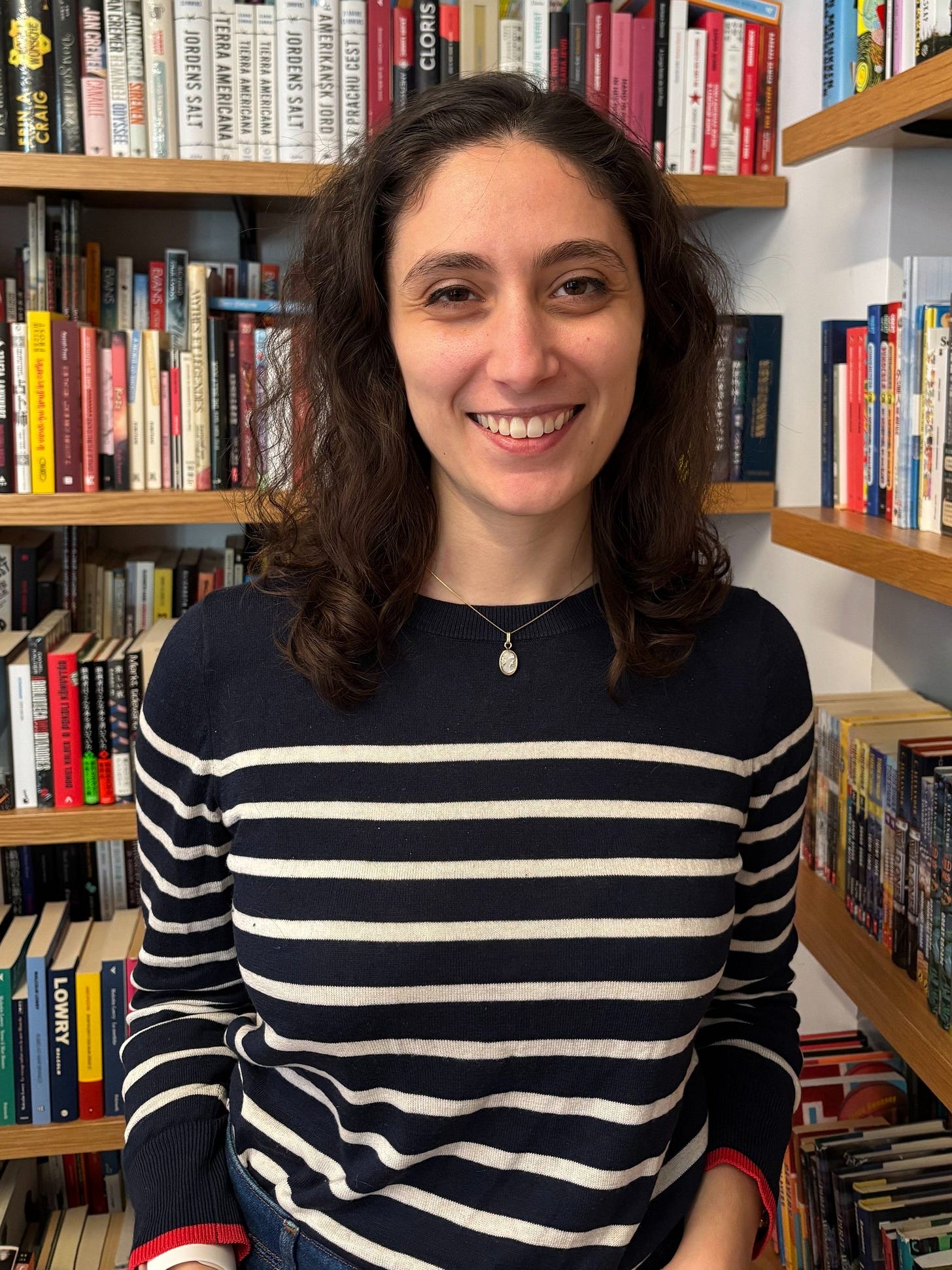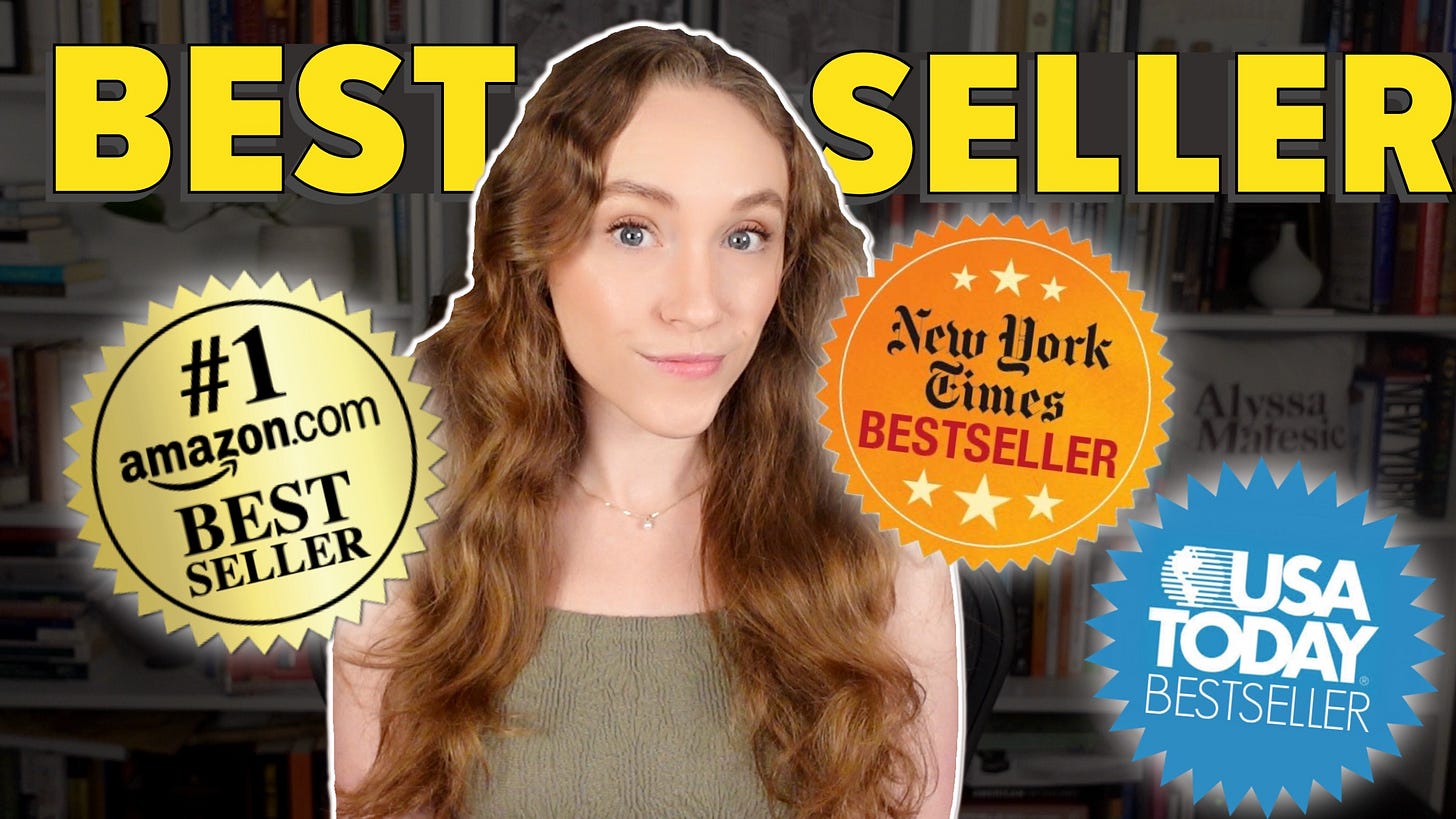The trait every successful author needs 🤸♀️
Today's guest is associate agent Lily Dolin.
All it takes is one yes.
It’s easy to look at your favorite bestseller and forget that behind every publishing success is a string of almosts. From rejections from agents and editors to near-misses in acquisitions meetings, it’s an uphill battle for most books.
But all it takes is one yes.
That’s why your flexibility is key.
From killing your darlings during the drafting phase to waiting for your book to make it through a publisher’s internal review process, the road to publication is often long and arduous. The ability to view your project through new lenses, stay the course, and hold onto the hope that someone will see the vision — even after setbacks — is what will ultimately help you go the distance.
In today’s interview, associate agent Lily Dolin weighs in on author platforms, explains the power of a strong query letter, and reminds us, “all it takes is one.”
OUR SPECIAL GUEST TODAY IS…
Lily Dolin
Associate Agent at Sterling Lord Literistic, Inc.
Lily is open to queries via email and QueryTracker, and is actively looking for upmarket/book club fiction, literary fiction, light speculative, thrillers, complex protagonists with lots of voice. For more, see her current #MSWL.
Can you share a client success story or a motivating anecdote for writers who feel may discouraged about publishing?
I have one author who I signed in a beauty contest—it was a novel I loved and really wanted to work on. Luckily, she signed with me! We edited the manuscript for a few months, went back and forth on editorial, put together a fantastic submission package, sent it out to a bunch of editors and then…nothing.
We got close with a few people who loved the book but weren’t able to get their teams on board. After a couple near misses and many more passes, we went back to the drawing board and did another round of edits ahead of a second submission. Once again, we sent the book out with high hopes and…nothing. A few editors brought the book to their acquisitions meetings, but weren’t able to get broader sign off to buy the book. It was frustrating, as I knew the novel was great, but it takes a lot for a book to get through the internal review processes at a publishing house.
Thankfully, towards the end of our second round submission, an editor came out of nowhere with an incredible passion for the book *and* a good financial offer. Ultimately, when the book published, it received a national book club nod and performed very well in the marketplace! This, despite being rejected by most editors.
This isn’t to say that every book sells, or that every project is saved by an eleventh-hour offer. Unfortunately, it’s an uphill battle to sell most books, and very often they don’t sell at all. But in the immortal words of Lady Gaga, “all it takes is one.” In the end, even if you are overwhelmed with a barrage of query rejections or submission passes, it really only takes one person to see the vision for a project, and believe in the work enough to fight for it.
What traits or qualities do you look for in a potential client?
This is a great question! I would say one of the biggest green flags for me is flexibility. When signing new authors, I always tell them that my editorial suggestions are in the end, suggestions, and that the revision process is an ongoing conversation, not a mandate. And this is true! But I always look for authors who are willing to kill their darlings, so to speak, and be flexible and receptive to edits both big and small. Being flexible and willing to look at your manuscript through a different lens often yields the best book and the best results. Beyond that, the submission and publication processes can be lengthy, arduous, and sometimes disappointing. The ability to manage the highs and lows of the publishing industry is crucial.
What is one piece of advice you would give to a writer who aspires to be published?
Don’t underestimate the importance of a well written, well structured query letter. Agents get dozens of submissions a week, if not in a day. Our reading piles accumulate quickly, and we have to be judicious about how we sort through the influx. I know authors are eager to stand out in a crowd, and sometimes that results in funky, out-of-the-box query letters. And while we love creativity, I’ve found the most successful pitch letters are not the ones with avant-garde structures or quippy/colloquial intros, but are rather the letters that read most like the copy on the back flap of a published book. Every agent is different in what they look for in a letter, but clear and concise notes that read like polished copy show me that an author knows how to pitch and market their idea, have thought through how to engage reader’s attention, and know comp titles that accurately provide marketplace context.
Ready for feedback that takes your story to the next level?
“With Alyssa's input, I see what needs to be revised in my draft, what works, and what does not. I am encouraged to keep going after Alyssa's professional assessment.”
—S.A. Mulholland, fiction author
What trends or shifts in publishing do you think emerging authors should have on their radar?
The truth is that it’s very hard to break a book out into a competitive marketplace, especially a debut. There’s a somewhat depressing statistic that 95% of books sell fewer than 5,000 copies. Now more than ever, marketing and publicity campaigns are a true partnership between authors and their publishing teams. As a result, editors are always eager to find not only good writers, but good promoters as well. This isn’t to say that you need to have a social media presence in order to get published! There are plenty of authors who find success without being online savants. However, it’s definitely becoming a trend, even in the fiction space, for publishers to rely on an author’s personal platform, relationships, and self-promotion to help supplement their own marketing and publicity efforts. For emerging authors, I think it’s important to establish yourself online, foster relationships with other authors, and know what is working well in the space into which you hope to publish. Understanding where your book fits into the larger publishing ecosystem and building the foundations to help contribute to its eventual promotion are key.
Approximately how many queries do you receive per year, and how many of those result in an offer of representation?
On any given week, I receive between 15–30 queries, so I would say on average I receive over 1,200 queries per year. This is just a rough estimate, but I do think it speaks to the volume agents are seeing across the board.
It’s a bit tricky to say how many authors I sign from the slush pile on any given year, as the number changes depending on the kinds of queries I receive and my bandwidth, but I would say I typically offer representation to around 8-10 authors yearly because I am actively building my list. Of course, some of these offers are given in competitive beauty contest situations, and no agent wins them all.
Working with authors requires a lot of time, investment, and energy, and so I have to be selective when it comes to the projects I take on. That being said, I’m always eager to find my next great author! And I really, truly, do love the slush pile. You never know what you might find…




I can easily understand the writers whom want to stand out and write query letters that doesn't work out well. That is usually the result when we want to stand out. I have found that to communicate clearly, the best way is to speak from the heart.
This was such a great interview, Alyssa! There is so much knowledge here!